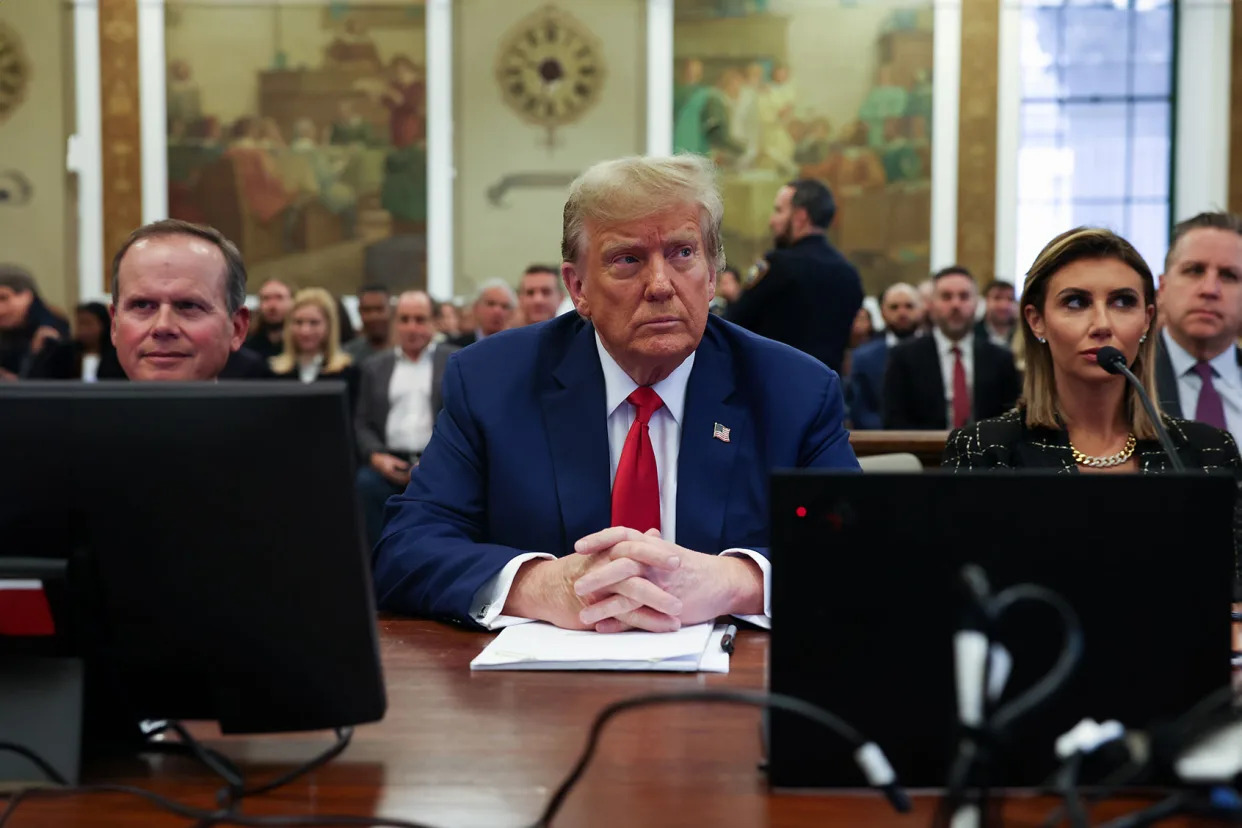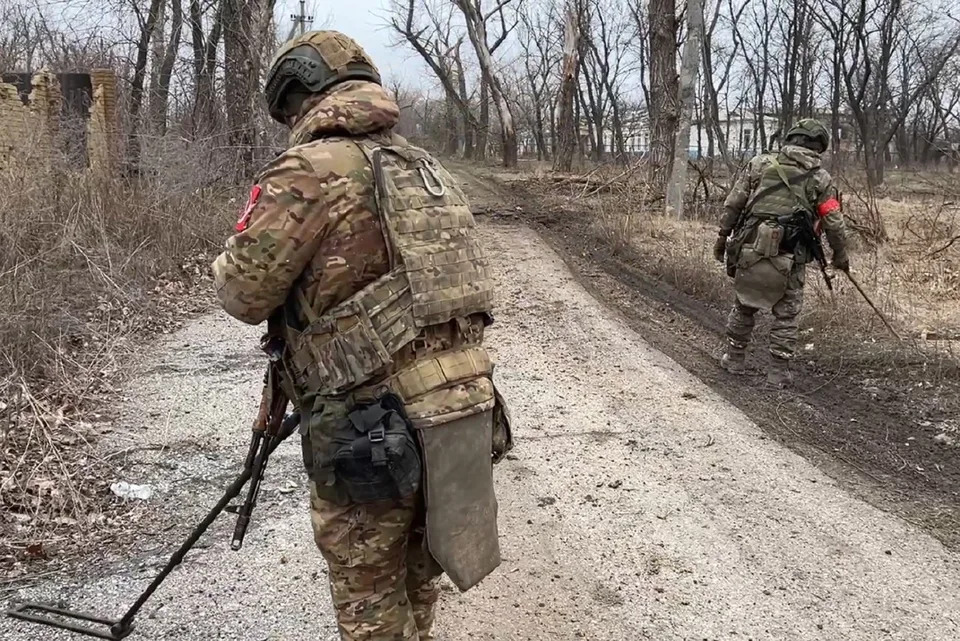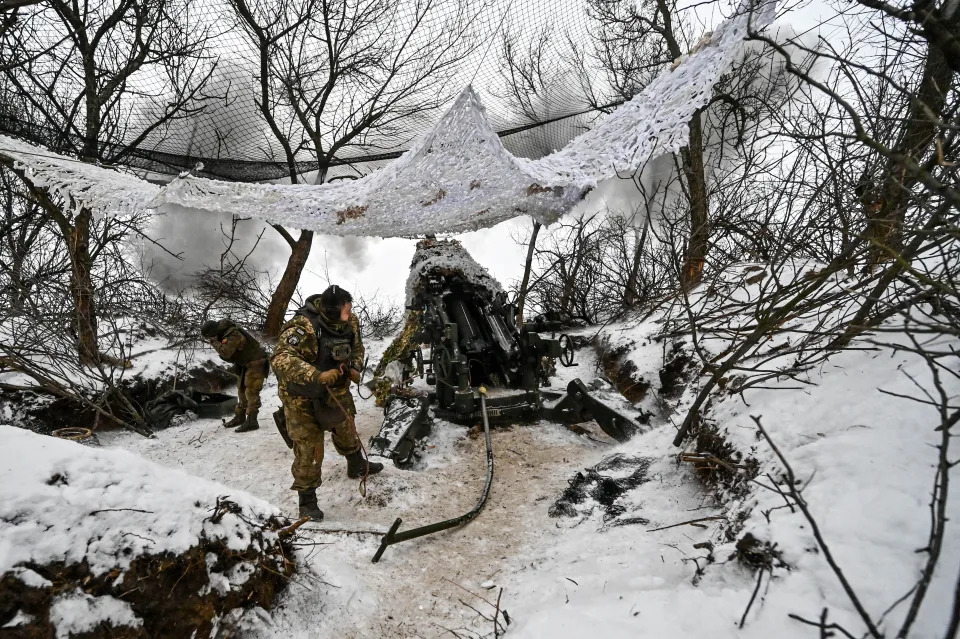Tim Lister, Maria Kostenko and Victoria Butenko – February 19, 2024
Avdiivka was on the front lines of war between Kyiv and Moscow for almost a decade. Fierce fighting raged there for months following Russia’s full-scale invasion of Ukraine nearly two years ago.
The withdrawal was far less drawn out. When the Ukrainian military abandoned the town on Saturday, handing Russia its most important victory in months, it was rapid and ruthless.
“Leave the 300 (wounded),” one soldier was purportedly ordered, “and burn everything.”
Hours after Russian troops raised their flags over Avdiivka, one horrifying story has emerged of several injured soldiers who failed to escape – and were later killed as Russian troops reached their position.
The Ukrainian servicemen there were part of the 110th Separate Mechanized Brigade, occupying a position known as Zenit. As Russian forces advanced through Avdiivka last week, Zenit came under heavy attack.
Soldiers stationed there made desperate attempts to escape the ruins of the town, according to Viktor Biliak, one of the soldiers there. In a long and often bleak Instagram post Biliak described the dangerous route that lay ahead.
“There was zero visibility outside. It was just about survival. A kilometer across the field. A bunch of blind kittens guided by a drone. Enemy artillery. The road to Avdiivka is filled with Ukrainian corpses,” he wrote.
Eventually a commander informed him over the radio that the wounded would not be evacuated. Six men were left behind. The messages they left were hard to read, Biliak said.
“Their despair, their doom. It will always stay with us. The most courageous are the ones who die,” he said.
The soldiers left behind
Avdiivka has been on the front lines since pro-Moscow separatists seized large portions of the Donbas region, including the nearby city of Donetsk, in 2014. Years of fighting has turned the town into a heavily fortified stronghold, with entrenchments built up over the past eight years.
But with Ukraine’s army under pressure along several points on the front line and facing ammunition and manpower shortages, the Russian military may have sensed a window of opportunity. It pummelled the area with airstrikes and artillery before intensifying the ground assault.
Ukrainian forces made the decision over the weekend to abandon the town, handing Russia its most significant victory since it captured the city of Bakhmut last year.
Ukrainian President Volodymyr Zelensky said the decision to pull back was made to “save our soldiers’ lives.”
Among those trapped and surrounded was a 30-year-old junior sergeant and combat medic from Dnipropetrovsk region named Ivan Zhytnyk, call-sign “Django.” He’d been fighting in Avdiivka for nearly two years, as had the 110th Brigade.
He was badly injured and could not move.
On Thursday, he was able to contact his sister Kateryna and other family members in an emotional video call, a call that has since received widespread coverage on Ukrainian and social media.
Kateryna asks her brother: “So, what, they … no one is coming? Your guys are there too (with you), or are you alone?”
Zhytnyk replied: “Everyone left, everyone retreated. They told us that a car would pick us up. I have two broken legs, shrapnel in my back. I can’t do anything …
He said there were a half-dozen soldiers at the Zenit position, four of whom, like Zhytnyk, could not walk.
Kateryna responds: “I don’t know how to … who to call,” she said while crying. “I can’t figure it out. Who will pick you up?”
No one did.
Ukrainian journalists working with Slidstvo.info later talked to relatives of three of the Ukrainians who were left wounded at the position.
Kateryna told Slidstvo.info: “They had been waiting for the (evacuation) vehicle for a day and a half. And when they realized that no one was coming to pick them up, they started calling everyone. When Ivan called me, he was in so much pain, they had given him everything they had left, but they were running out of medicine and food.”
Later Thursday, another relative reached Zhytnyk via video link, according to Kateryna.
“My brother said that the command had agreed that the Russians would take them out because our men would not get to them,” Kateryna said. As they spoke, she said, the video showed Russian troops entering the position where the men were trapped.
CNN has not seen that video.
Another of the soldiers trapped at Zenit was Andrii Dubnytskyi. His wife Liudmyla told Slidstvo.info: “We talked at 10 a.m. (on Thursday). He was wounded in the groin, he was reeling, trying to joke, started crying. Then we texted …”
“The last message was at 12:00 that he would be captured,” she said.
‘Mom, I am a warrior’
On Friday, a video was posted by a Russian military blogger that showed the bodies of several of the soldiers. The video carried the emblem of the Russian Army’s 1st Slavic Brigade, which had entered the Zenit area in the south of Avdiivka two days earlier, according to multiple accounts.
The text on the video says it was shot on Friday in Avdiivka at a “military unit facility.” It refers to the Ukrainian troops there as Nazis and says ”only death is waiting for you at our land.”
Kateryna recognized her brother’s body by his clothes and by the water bottle he was holding when the Russians took them from the Zenit position.
Biliak, the soldier who posted his account on Instagram, recognized Andrii Dubnytskyi because he had a tattoo in the shape of a cross on his arm.
So did Dubnytskyi’s wife, Liudmyla, who found the video late at night. “At 10:30 p.m. I found this video, I recognized him by his tattoo,” she said.
“He was called up on March 8, 2022, and since then he had been in Avdiivka all the time … My daughter was 4 months old when he was mobilized,” she told Slidstvo.info.
The mother of another of the soldiers made the same horrifying discovery.
Heorhii Pavlov, call-sign “Panda,” had been a contract soldier since 2015 and had served at the Zenit position for the last year, according to his mother Inna.
“They waited for three days for an (evacuation) car,” she said.
“On the 14th he was wounded, he had shrapnel wounds, his back … I begged him very much, son, surrender, I need you alive – he has a small child, 5 years old.”
“He said: Mom, I am a warrior,” Inna recounted to Slidstvo.info.
“I would like to believe that they are alive. The only thing I want now is to find my son,” she said Friday.
A few hours later she recognized the body of her son in the same Russian video.
The 110th Brigade told CNN that it could not verify any details of the incident and was trying to check what had happened.
A well-known Ukrainian military blogger, Yurii Butusov, has since posted the names of all six soldiers who were left behind at the Zenit position.
“These wounded were unable to move on their own, and there were no evacuation vehicles available to transport them. Due to the complete encirclement of Zenit, no vehicles could get through for evacuation,” Butusov said.
It’s not known how the soldiers died, but Butusov alleged that the Russian military “executed the helpless unarmed wounded, who were captured and unable to move.”
The Prosecutor General’s Office in Ukraine said an investigation had been launched into “violation of the laws and customs of war, combined with premeditated murder” in the case of the injured soldiers.
In a statement published Monday, the 110th Separate Mechanized Brigade said that it attempted to negotiate with Russian forces to evacuate wounded troops from the Zenit position after it was completely encircled.
“They [agreed] to evacuate our wounded and provide them with assistance, and subsequently exchange them (for other prisoners of war). Our soldiers were ordered to save their lives,” the statement read.
The brigade later learned its soldiers were killed from the video released by Russian forces.
“War is cruel and we are fighting for freedom at a high price,” it said.
CNN is reaching out to the Russian Ministry of Defense for comment on the allegations against Russian forces in Avdiivka.









